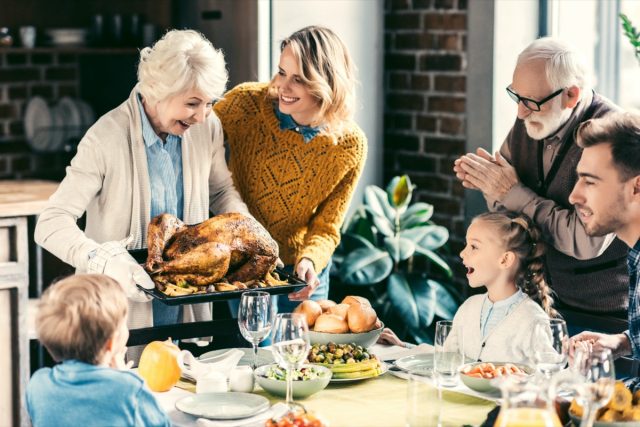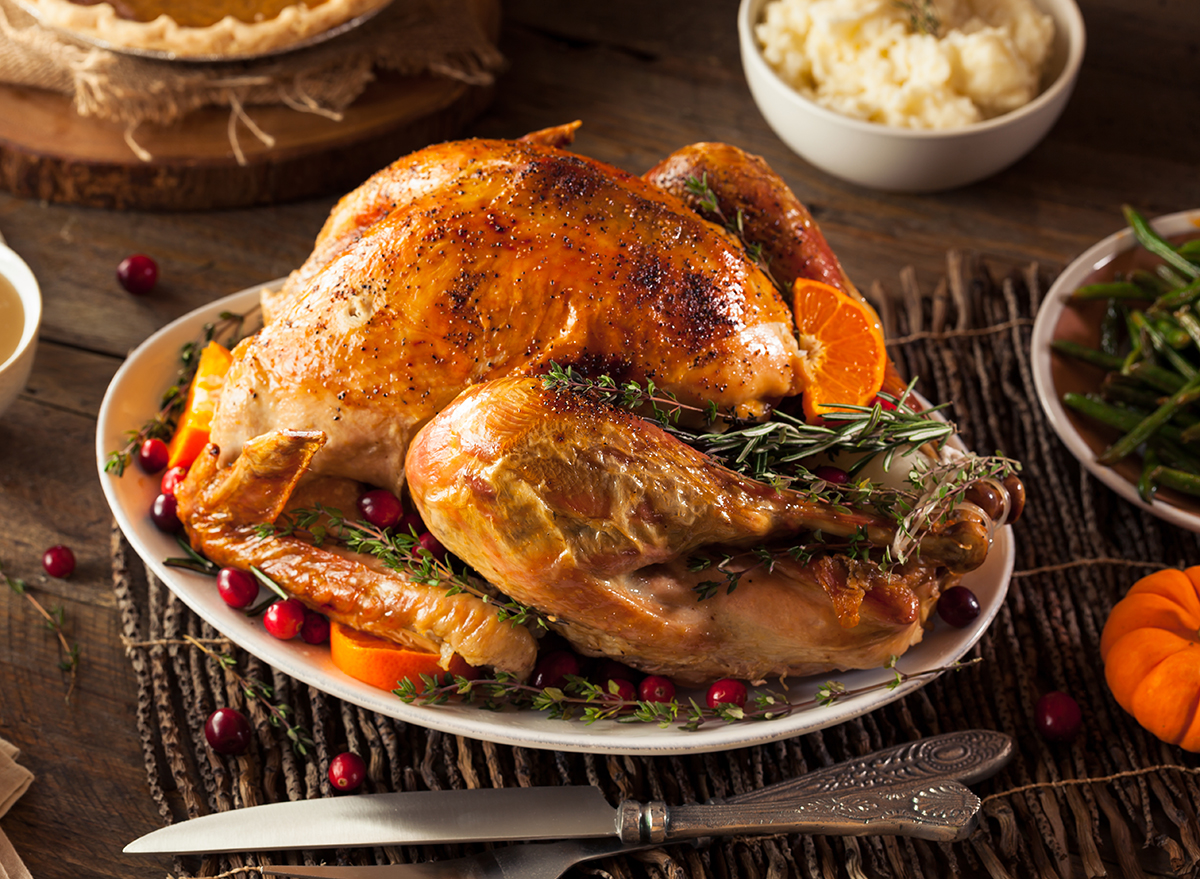Let’s find out ‘Why Does Turkey Dries Out? And How to Avoid It’ The internet is inundated every year during the Thanksgiving season with advice on how to cook the ideal bird. Thanksgiving turkey roasting seems to be nothing short of rocket science, from the optimum brine and herb butter, spread to the ideal timing and temperature.
A dried-out turkey is the unavoidable Thanksgiving faux pas, despite the fact that many people believe a 4 a.m. morning call is necessary for roasting the ideal bird.
Why does eating dry, crunchy turkey seem inevitable after spending so much time and effort preparing that Thanksgiving bird? Fortunately, we contacted some experts for a quick fix so you can avoid this destined Thanksgiving calamity.
Why Does Turkey Dries Out? And How to Avoid It
According to Chef Rob Levitt, head butcher of Publican Quality Meats, “turkey dries out because the dark flesh takes longer to cook than the white meat.”
Want to roast the ideal turkey without having any unevenly cooked meat? To make sure your bird is properly moist and tasty on Thanksgiving, remember the following advice. Avoid these 17 Major Ways You’re Cooking a Turkey Wrong for additional advice on roasting a turkey.
Methods For Making A juicy Thanksgiving Turkey

Chef Levitt offers the following advice to make sure the turkey cooks evenly without drying out in order to prevent a turkey travesty:
- Your turkey will cook more quickly and evenly if you butterfly it. Your entire chicken or turkey bird will be split open during this way of cooking so it may lay flat on a pan or grill. It’s actually one of Ina Garten’s favorite methods for preparing a bird.
- Separately cook each form of turkey meat, removing pieces from the whole bird as it roasts based on when each type of meat seems to be done. It might not exactly offer you the same “wow” factor on Thanksgiving as you set down a perfectly golden turkey on the table if you separate the sections of your turkey as they cook rather than waiting for the whole bird to roast. But for that reason, Chef Levitt also makes the third recommendation.
- Before the turkey is completely cooked, remove it from the oven. The turkey will actually continue to cook on the counter after being taken out of the oven because it is so hot. Chef Levitt and countless other chefs urge you to give your turkey some time to rest because of this. Chef Levitt advises doing this by removing the turkey when the thickest section of the breast reaches 150°; the dark flesh will probably be at or slightly above 155°.
- Before slicing your turkey, let it sit on the counter for a while. You’ll have enough time to prepare those Thanksgiving sides in anywhere from 30 minutes to a few hours. Some professionals advise against using aluminum foil to cover the turkey. The turkey will be effectively enclosed in another makeshift oven because it is already hot when it comes off the grill or comes off the spit. Your turkey may cook to a greater temperature than intended and get rapidly dry if it is covered.
Also Read: Effects Of Consuming Japanese Teriyaki Sauce
The Type of Turkey Also Matters
While the aforementioned strategies are effective ways to avoid a dried-out turkey, it’s also critical to keep in mind the sort of turkey. Even while white turkeys are typically bought for Thanksgiving dinners across the nation, they aren’t renowned for producing the most tender cuts of meat when roasted.
According to Paul Kelly, managing director of KellyBronze, turkeys have been bred to grow so quickly that they must now be harvested when they are very young to produce the 10–14 pound turkey that most people prefer. They haven’t yet put on the fat that would keep the bird naturally juicy because they are still in their early adolescence when they are harvested.
A white turkey is normally harvested at 12 weeks, while a bronze fowl is typically harvested at 6 months, according to Kelly. The intramuscular fat that the turkey creates as it ages helps to keep the meat moist rather than drying out after roasting.
Turkey is a tough cut of meat that dries up rapidly once the temperature is exceeded, according to Kelly. Due to the fact that a slow-growing bronze breed has more intramuscular fat, which conducts heat through the bird more quickly, it will cook more quickly than a fast-growing commercial breed.
Kelly urges you to roast your turkey with a meat thermometer nearby to ensure you receive the most flavorful bird possible.
Also Read: 7 Secrets And Tips To Picking the Best Salmon, According To Chefs
Why Does Turkey Dries Out? And How to Avoid It




